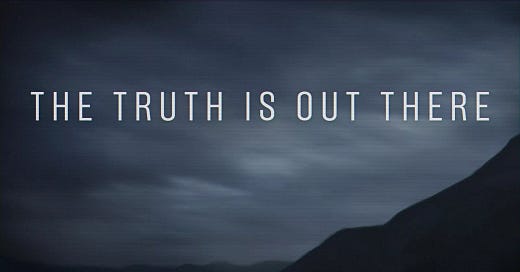Truth Matters
Sep 20: Memorial of Saints Andrew Kim Tae-gŏn, Priest, and Paul Chŏng Ha-sang, and Companions, Martyrs
The Church in Korea is unusual, because it didn’t come about through the efforts of outside missionaries; Korean laypeople brough the missionaries to Korea!
Yi Seung-hun was baptized in 1784, in Beijing. Returning to Korea with rosaries, statues, and catechisms, he brought the Church home. Desiring the sacraments, Paul Chŏng Ha-sang repeatedly risked his life to smuggle missionaries into the country. Andrew Kim Tae-gŏn was the first Korean native to be ordained to the priesthood. He served only a year before he was arrested.
“My eternal life is beginning now,” he proclaimed in his last sermon, just before he was beheaded.
Reading 1
1 Cor 15:12-20
Brothers and sisters: If Christ is preached as raised from the dead, how can some among you say there is no resurrection of the dead? If there is no resurrection of the dead, then neither has Christ been raised. And if Christ has not been raised, then empty too is our preaching; empty, too, your faith. Then we are also false witnesses to God, because we testified against God that he raised Christ, whom he did not raise if in fact the dead are not raised. For if the dead are not raised, neither has Christ been raised, and if Christ has not been raised, your faith is vain; you are still in your sins. Then those who have fallen asleep in Christ have perished. If for this life only we have hoped in Christ, we are the most pitiable people of all.
But now Christ has been raised from the dead, the firstfruits of those who have fallen asleep.
There was a bit of a kerfuffle in certain corners of Substack a few weeks ago, when a (far?) right wing commentator wrote a lengthy critique of Christianity based on (his view of) socio-political outcomes. I don't like to talk about politics here, so I didn't bring it up at the time.
But the
wrote a thorough takedown which I generally agreed with, and this passage in particular relates to today's readings—The problem is that they evaluate Christianity in terms of its utility to that end rather than in terms of its specific metaphysical, ethical, and historical claims.
That's what I kept thinking when I read the original article: "Yeah, but what if it's true?"
That's what Paul is getting at here. Christianity is hypothetical; it's not a political system subject to updating or a perspective shift or a vibe. It is a claim of literal, historical truth—that God became man, died, and rose from the dead 2,000(ish) years ago. If that's not true, none of the rest of it matters, and you might as well read Aristotle or Marcus Aurelius or any other ancient thinker and moralist.
Jesus wasn't a nice guy who taught us to be nice to each other. Well, he was, but he wasn't just that.
Responsorial Psalm
Ps 17:1bcd, 6-7, 8b and 15
R. (15b) Lord, when your glory appears, my joy will be full.
Hear, O LORD, a just suit;
attend to my outcry;
hearken to my prayer from lips without deceit.
R. Lord, when your glory appears, my joy will be full.
I call upon you, for you will answer me, O God;
incline your ear to me; hear my word.
Show your wondrous mercies,
O savior of those who flee
from their foes to refuge at your right hand.
R. Lord, when your glory appears, my joy will be full.
Hide me in the shadow of your wings,
But I in justice shall behold your face;
on waking, I shall be content in your presence.
R. Lord, when your glory appears, my joy will be full.
This psalmist is unjustly on trial, and he invokes God in the spirit of truth. The truth should always be a defense.1 Jesus tells us He is the way, the truth, and the life.2 Truth matters.
Alleluia
See Mt 11:25
R. Alleluia, alleluia.
Blessed are you, Father, Lord of heaven and earth;
you have revealed to little ones the mysteries of the Kingdom.
R. Alleluia, alleluia.
You don’t have to be smart to accept the Gospels. Lucky for me!
Gospel
Lk 8:1-3
Jesus journeyed from one town and village to another, preaching and proclaiming the good news of the Kingdom of God. Accompanying him were the Twelve and some women who had been cured of evil spirits and infirmities, Mary, called Magdalene, from whom seven demons had gone out, Joanna, the wife of Herod's steward Chuza, Susanna, and many others who provided for them out of their resources.
Some people served Jesus directly, while others provided monetarily. Money itself isn’t bad; love of money is.3 Those who provided “out of their resources” loved Jesus more than money.
We shouldn’t worry too much about how we serve Jesus and the Church, whether it’s with time, treasure, or talent, and we certainly shouldn’t compare our service to others’. Instead, we should do our best with what we can, and trust that God will do the rest.
Again, not to get too political, but thank God that this value is enshrined in American law, unlike some other countries.




